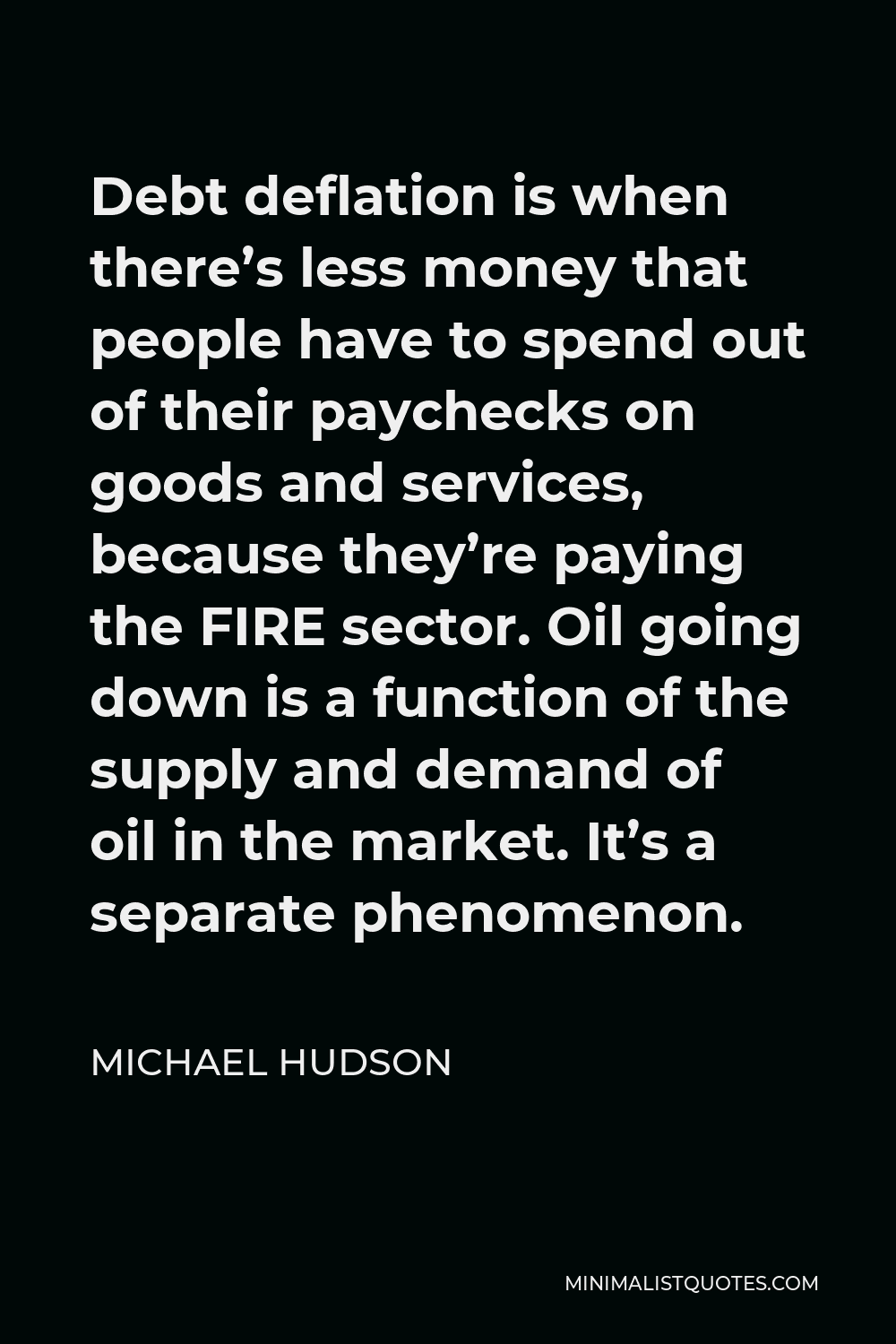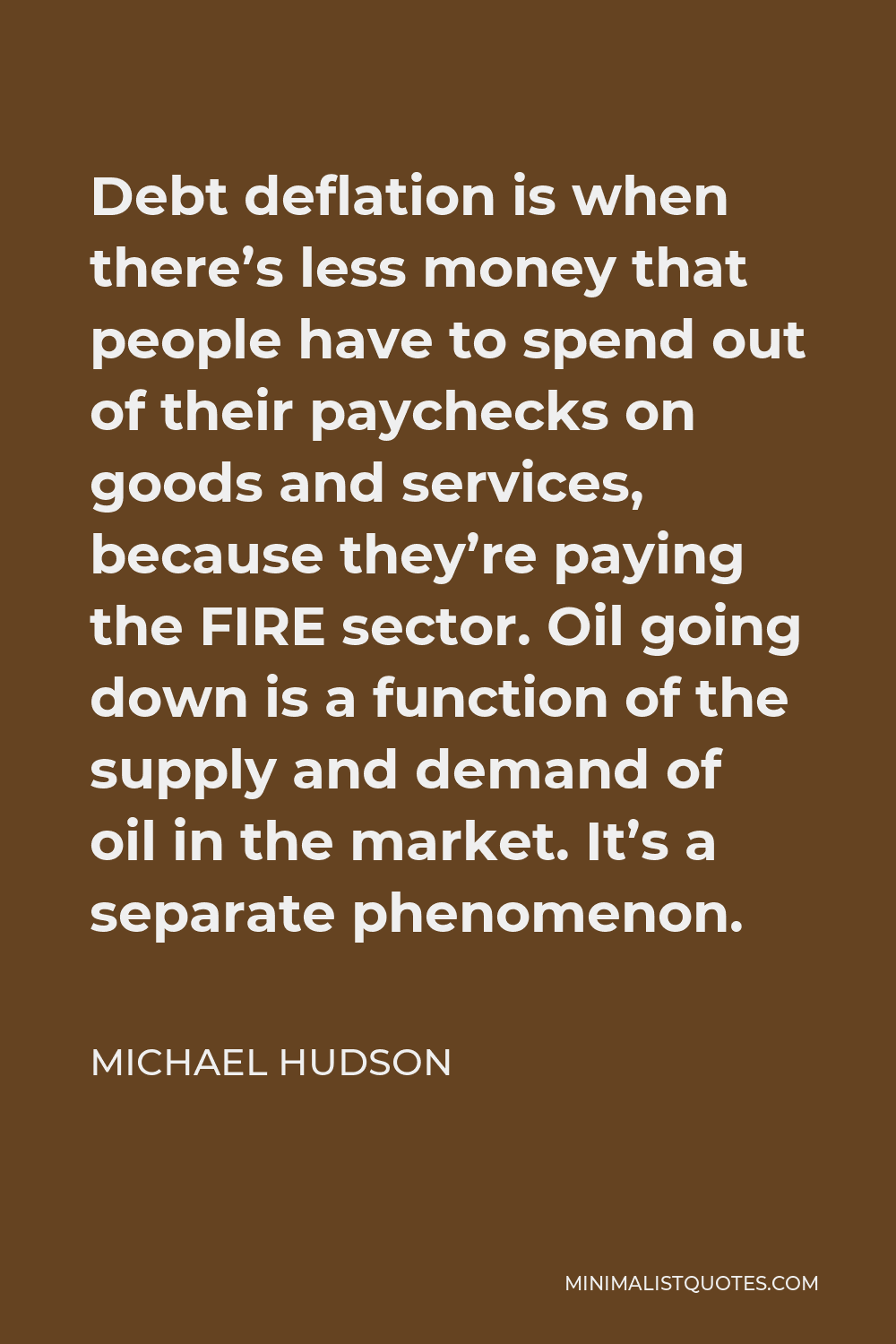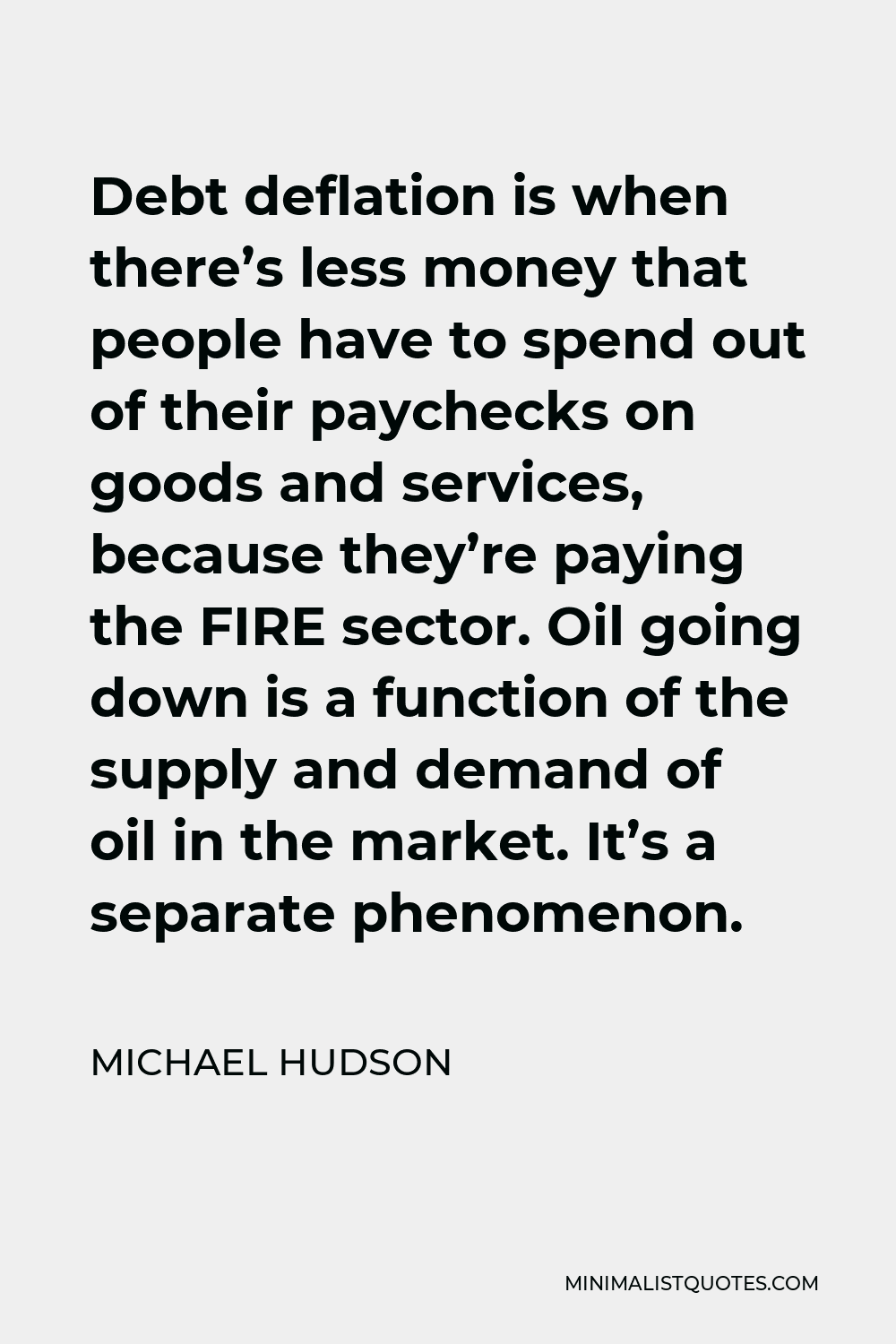The myth is that if housing prices go up, Americans will be richer. What banks – and behind them, the Federal Reserve – really want is for new buyers to be able to borrow enough money to buy the houses from mortgage defaulters, and thus save the banks from suffering from more mortgage defaults.
MICHAEL HUDSONDebt deflation is when there’s less money that people have to spend out of their paychecks on goods and services, because they’re paying the FIRE sector. Oil going down is a function of the supply and demand of oil in the market. It’s a separate phenomenon.
More Michael Hudson Quotes
-





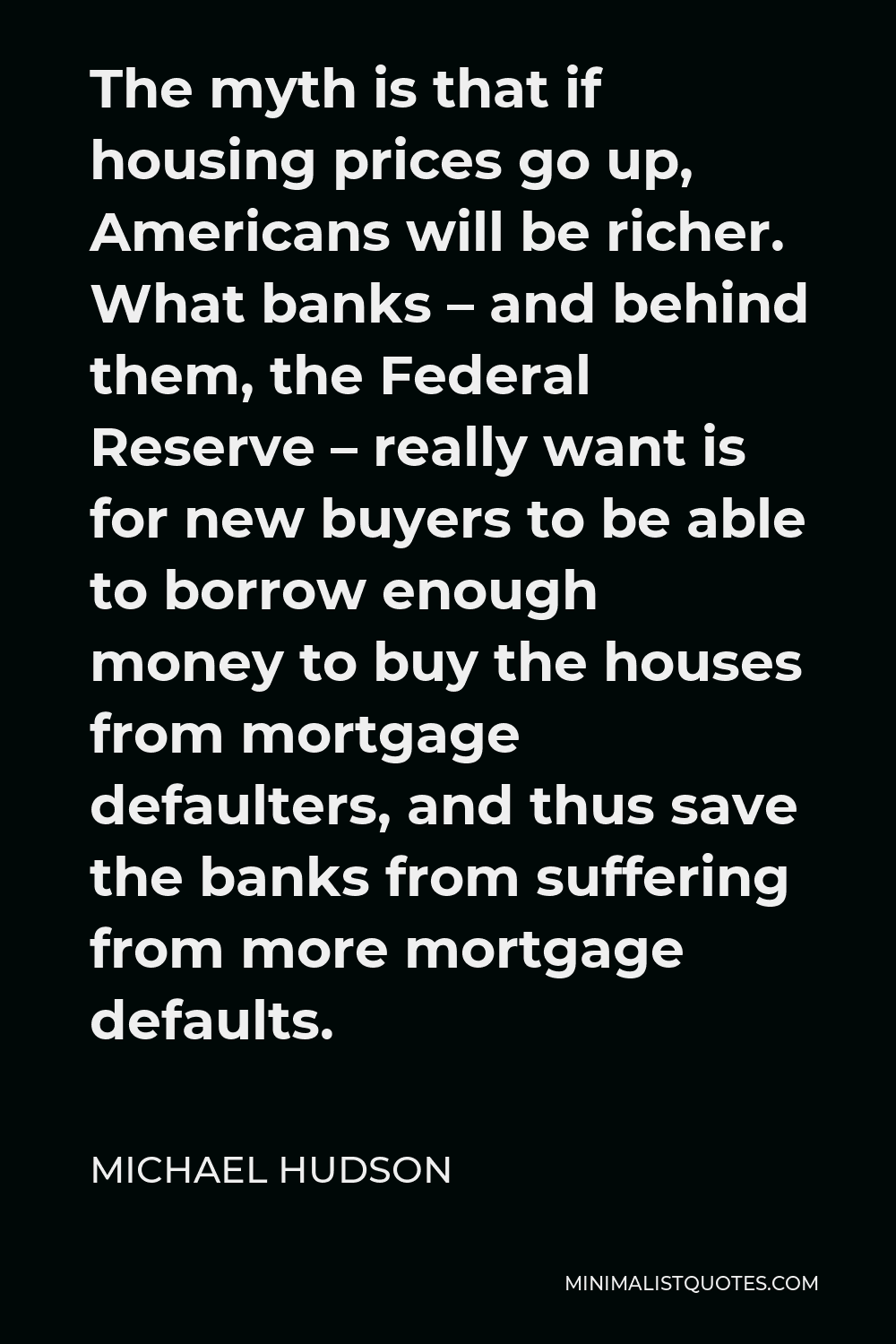
-





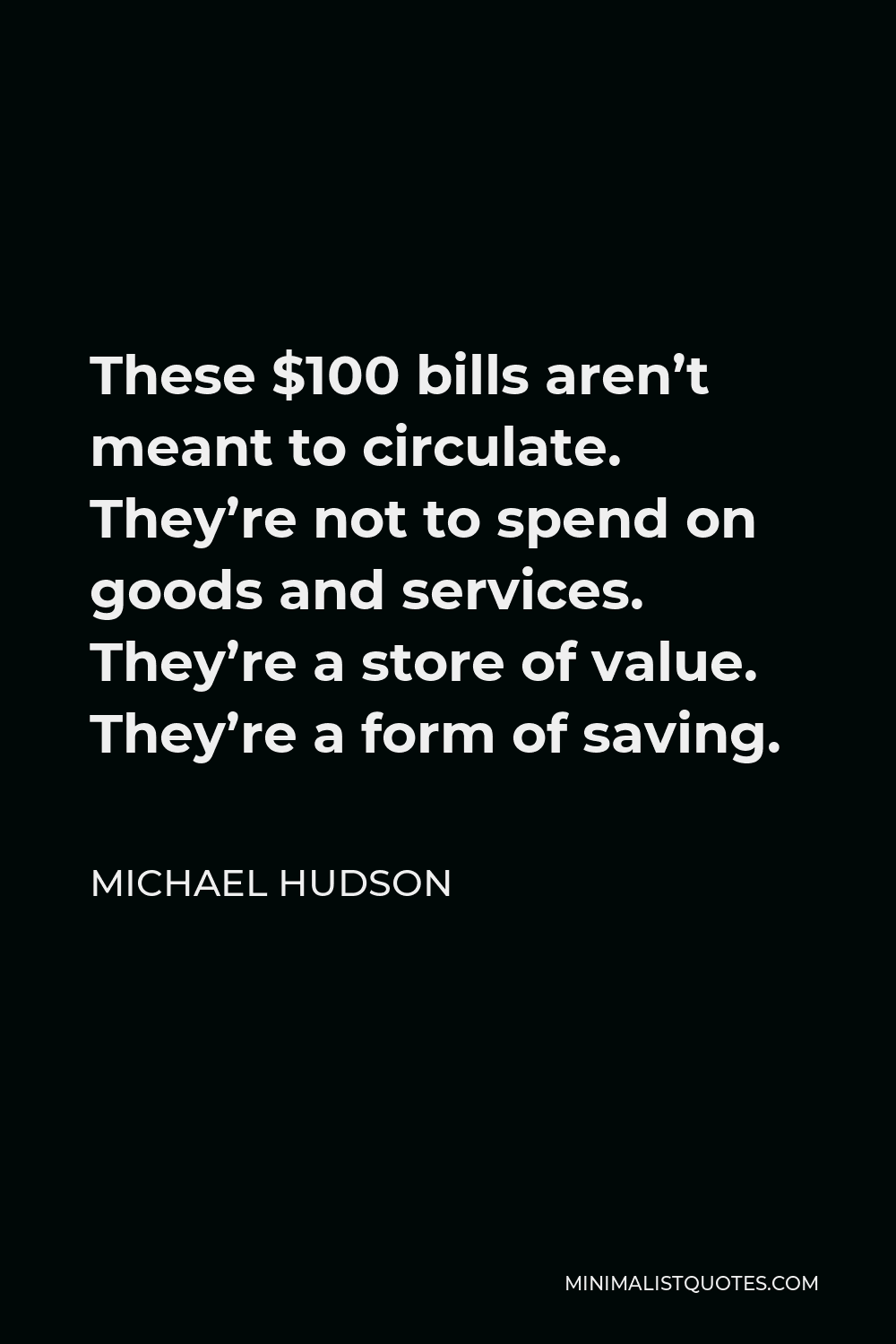
These $100 bills aren’t meant to circulate. They’re not to spend on goods and services. They’re a store of value. They’re a form of saving.
MICHAEL HUDSON -





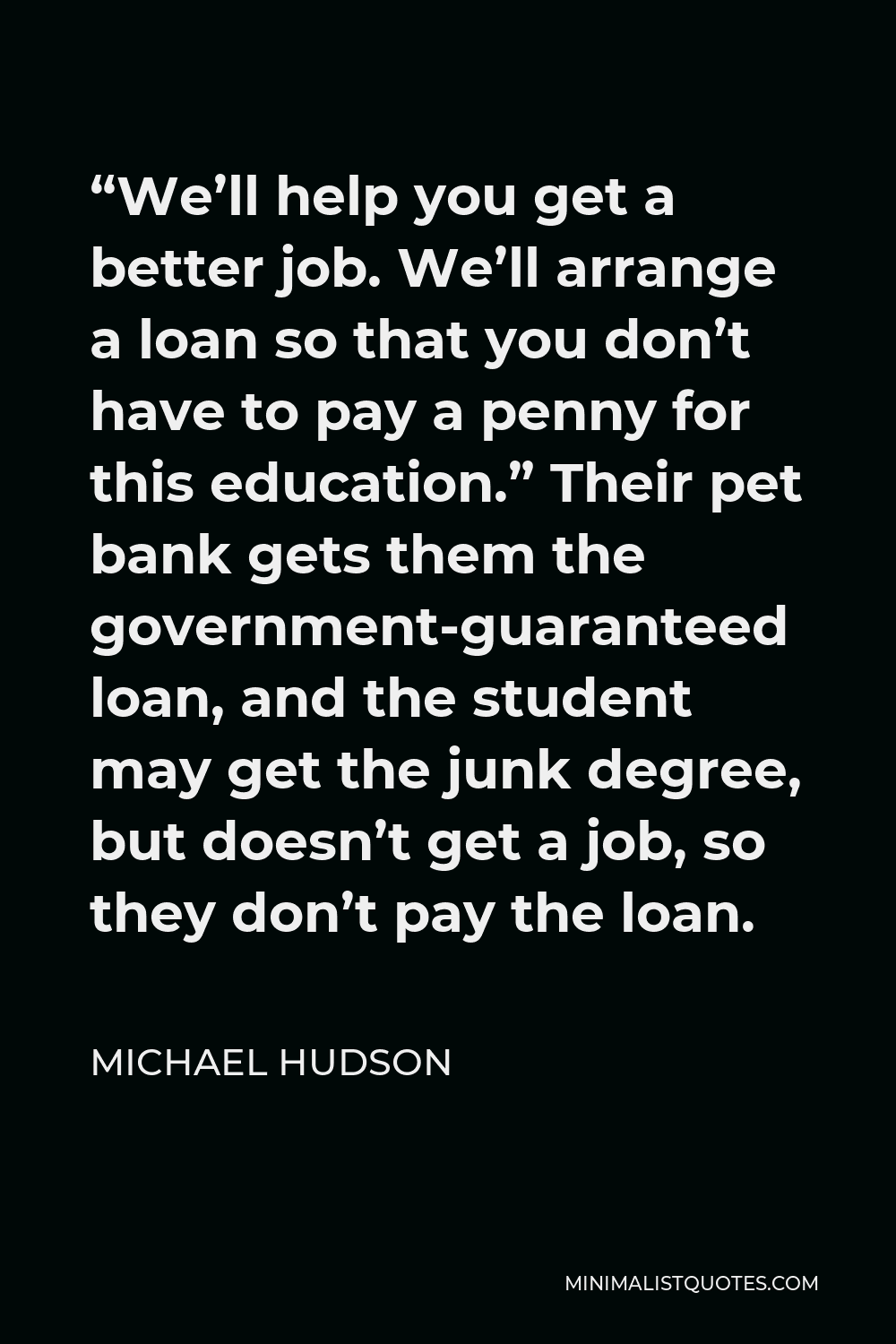
“We’ll help you get a better job. We’ll arrange a loan so that you don’t have to pay a penny for this education.” Their pet bank gets them the government-guaranteed loan, and the student may get the junk degree, but doesn’t get a job, so they don’t pay the loan.
MICHAEL HUDSON -





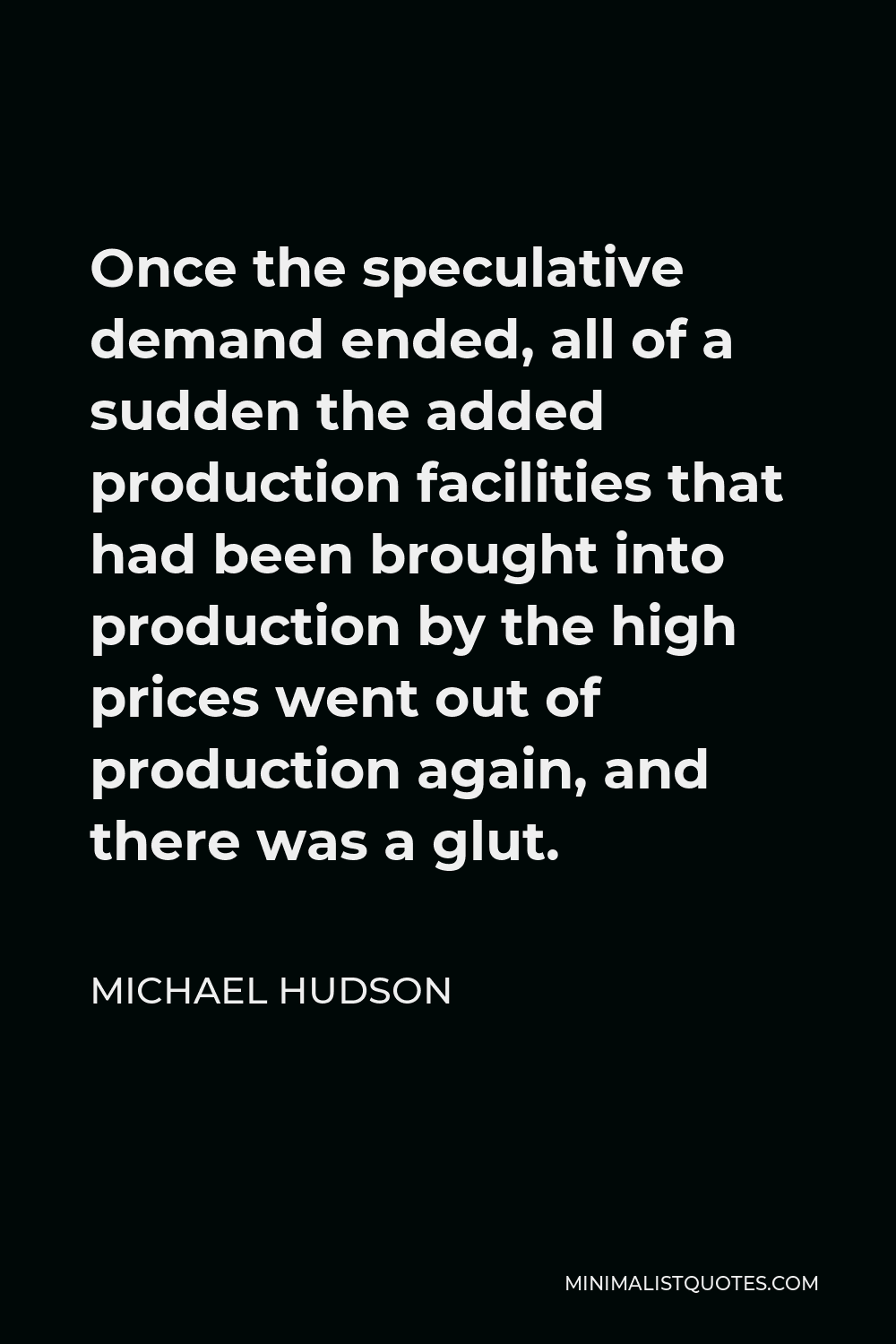
Once the speculative demand ended, all of a sudden the added production facilities that had been brought into production by the high prices went out of production again, and there was a glut.
MICHAEL HUDSON -





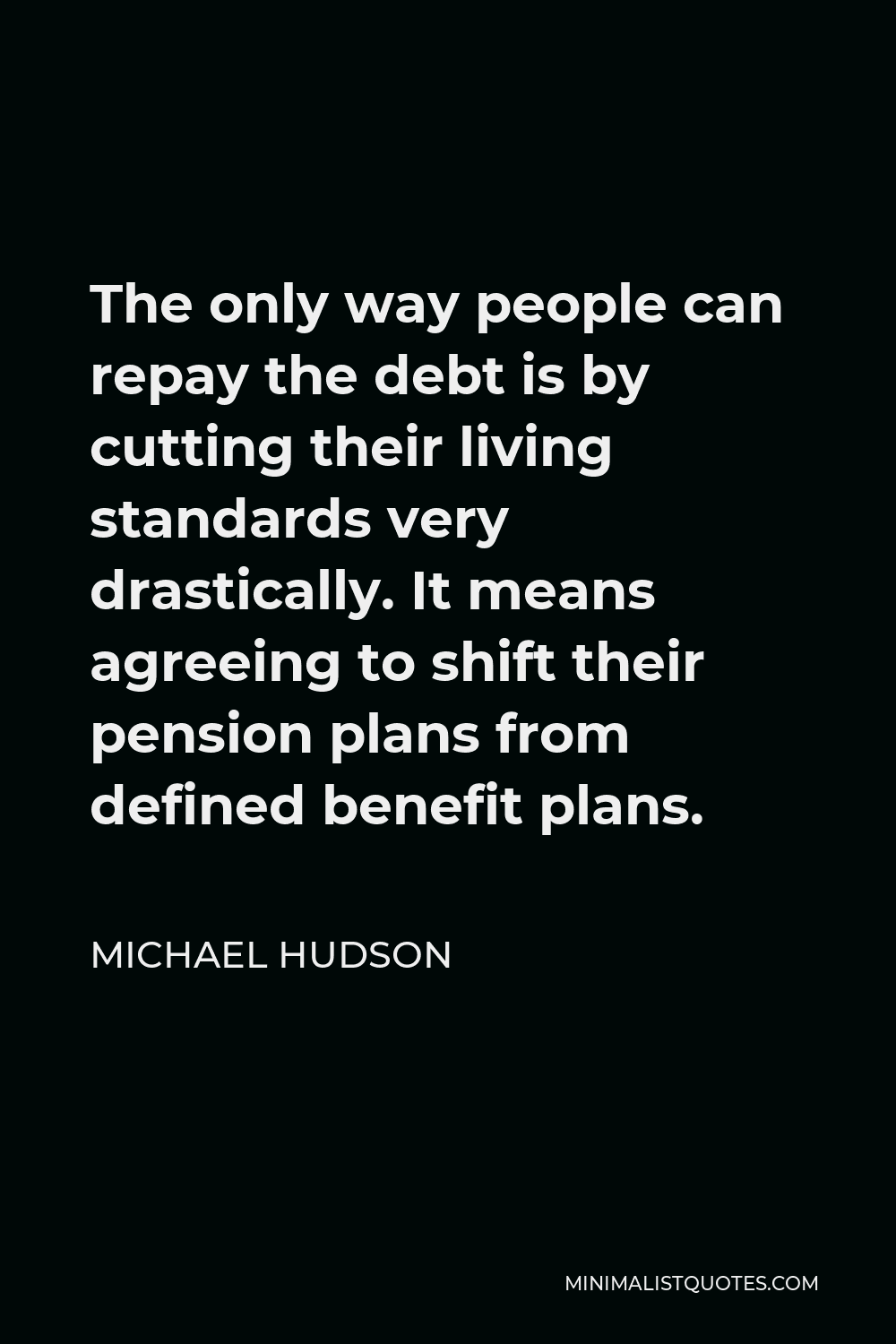
The only way people can repay the debt is by cutting their living standards very drastically. It means agreeing to shift their pension plans from defined benefit plans.
MICHAEL HUDSON -





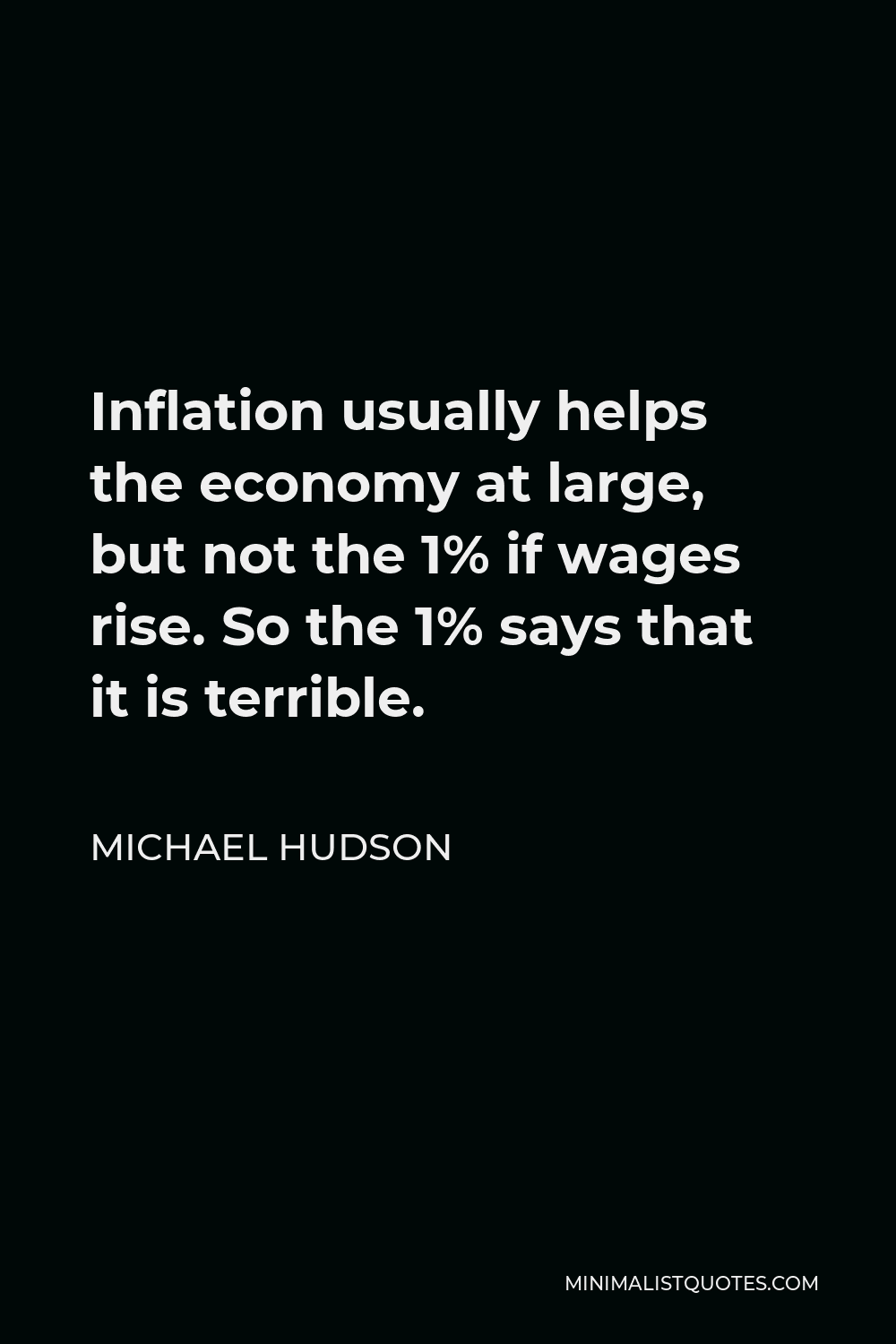
Inflation usually helps the economy at large, but not the 1% if wages rise. So the 1% says that it is terrible.
MICHAEL HUDSON -





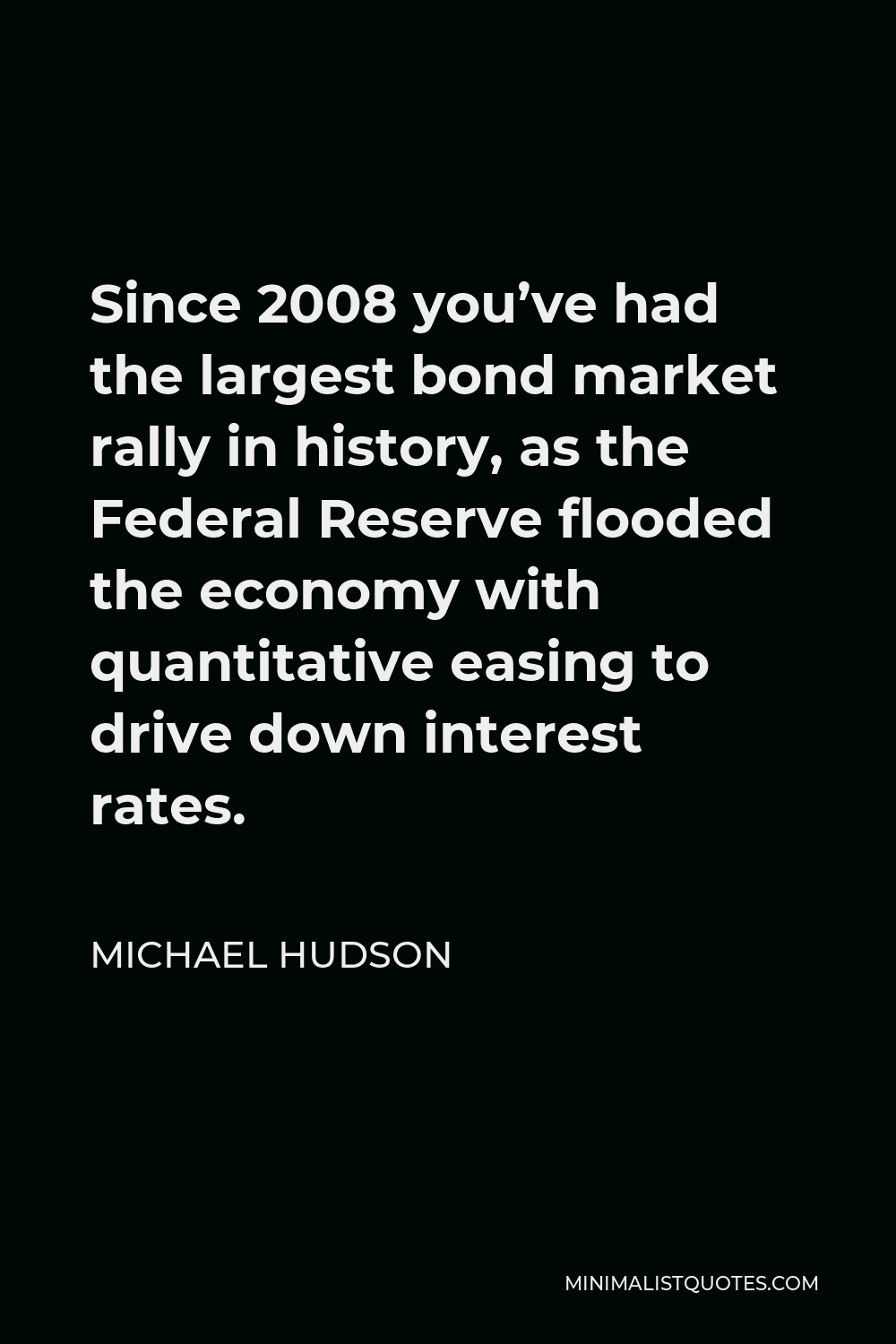
Since 2008 you’ve had the largest bond market rally in history, as the Federal Reserve flooded the economy with quantitative easing to drive down interest rates.
MICHAEL HUDSON -






Normally, if someone goes bankrupt, you wipe out the debt and get a fresh start. But that’s not permitted with student loans. So the effect is to impoverish many graduates with very high debts.
MICHAEL HUDSON -





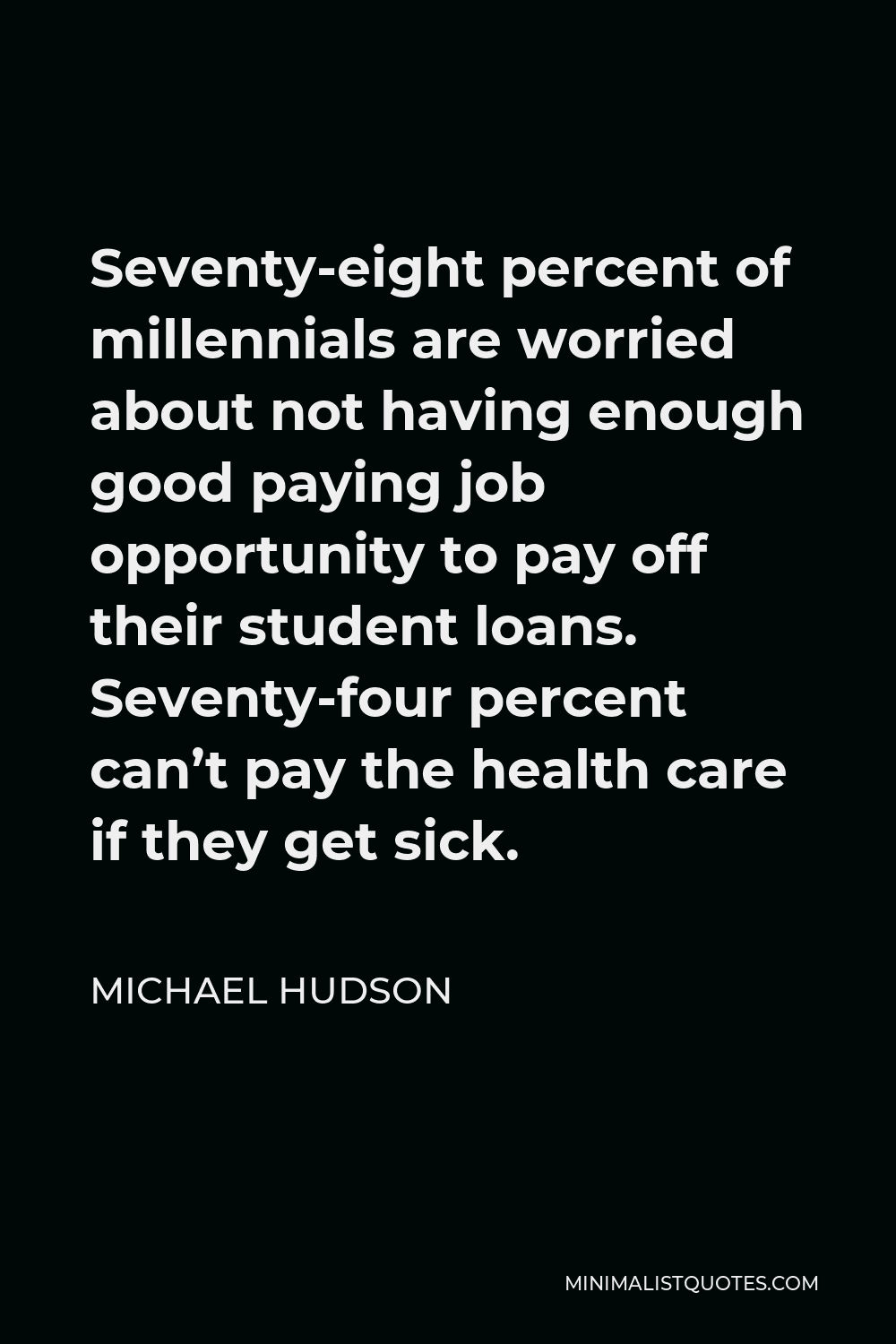
Seventy-eight percent of millennials are worried about not having enough good paying job opportunity to pay off their student loans. Seventy-four percent can’t pay the health care if they get sick.
MICHAEL HUDSON -





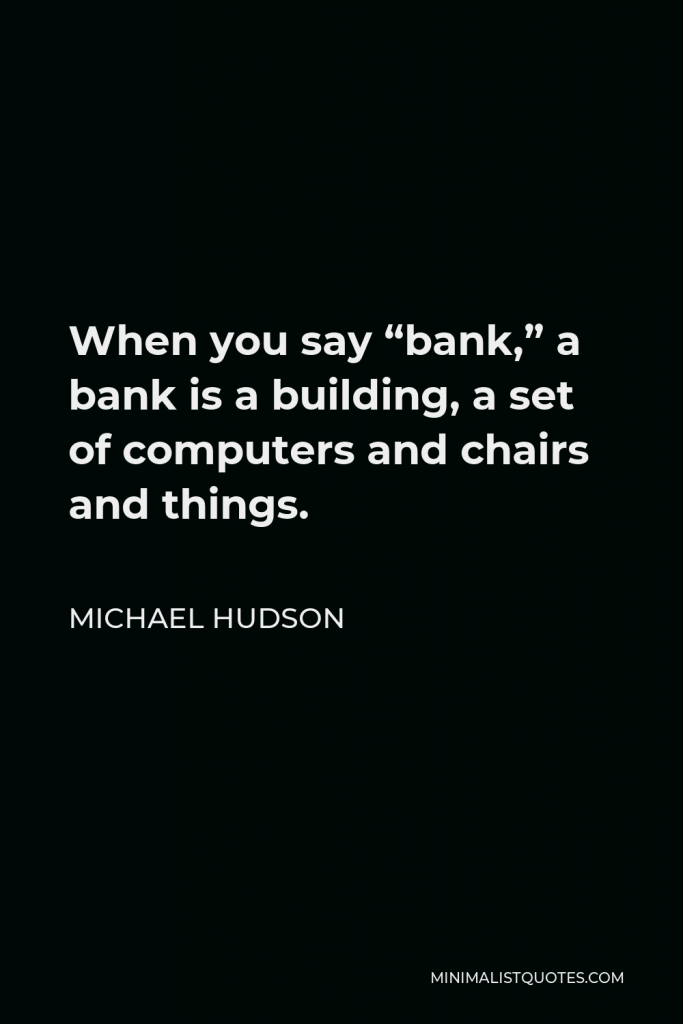

When you say “bank,” a bank is a building, a set of computers and chairs and things.
MICHAEL HUDSON -







I guess the main thing that came out of the Panama Papers was that Ukrainian President Poroshenko had promised to divest of his chocolate company and instead, he simply moved it into an offshore account.
MICHAEL HUDSON -





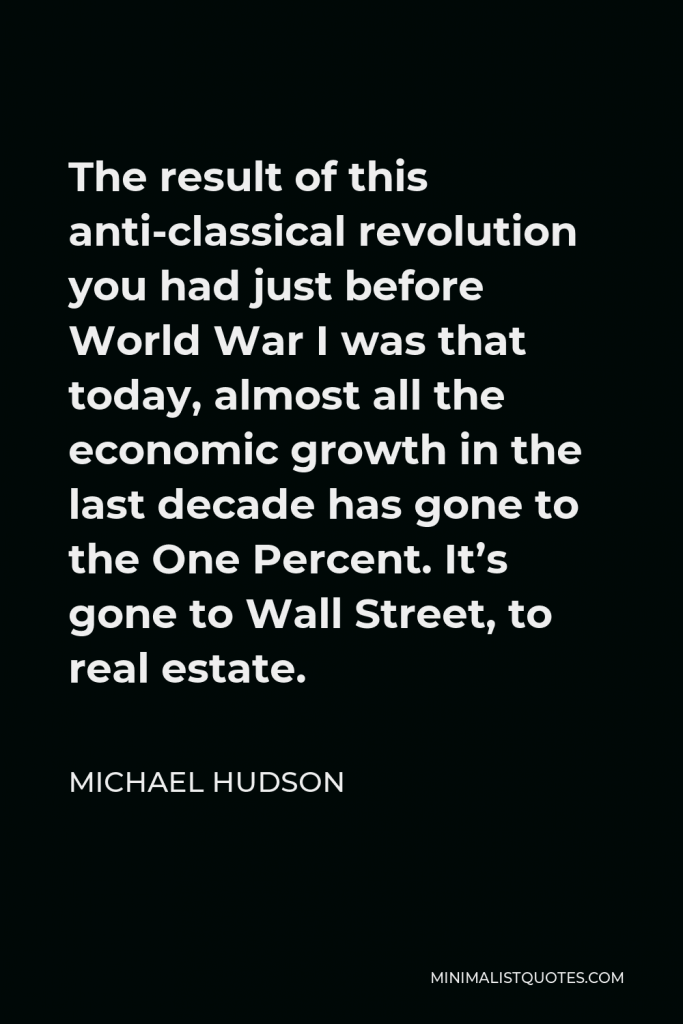

The result of this anti-classical revolution you had just before World War I was that today, almost all the economic growth in the last decade has gone to the One Percent. It’s gone to Wall Street, to real estate.
MICHAEL HUDSON -





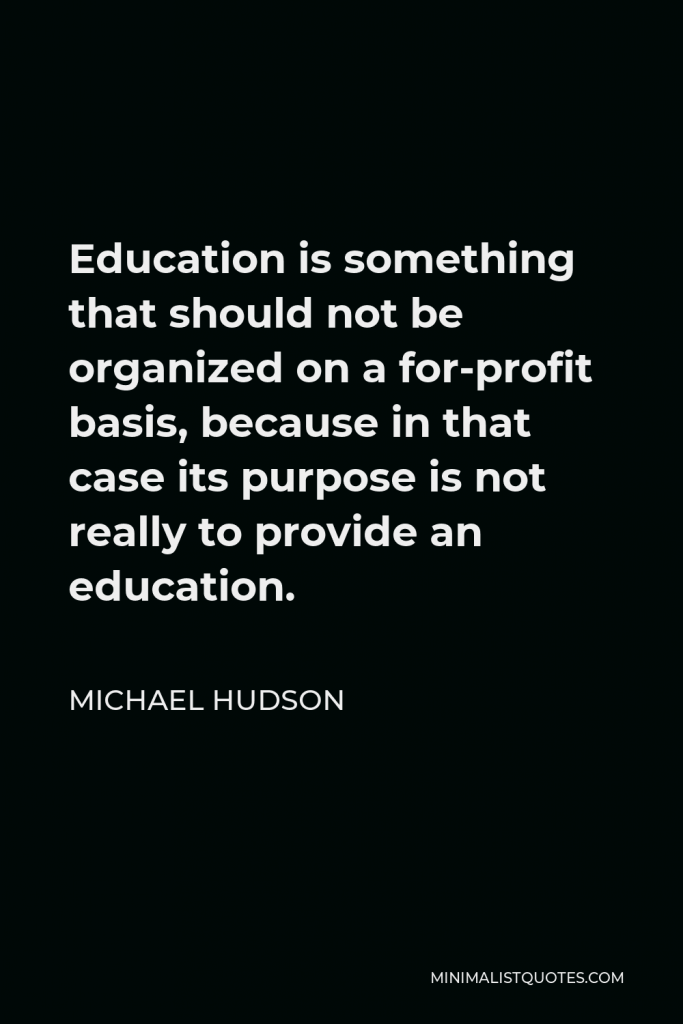

Education is something that should not be organized on a for-profit basis, because in that case its purpose is not really to provide an education.
MICHAEL HUDSON -





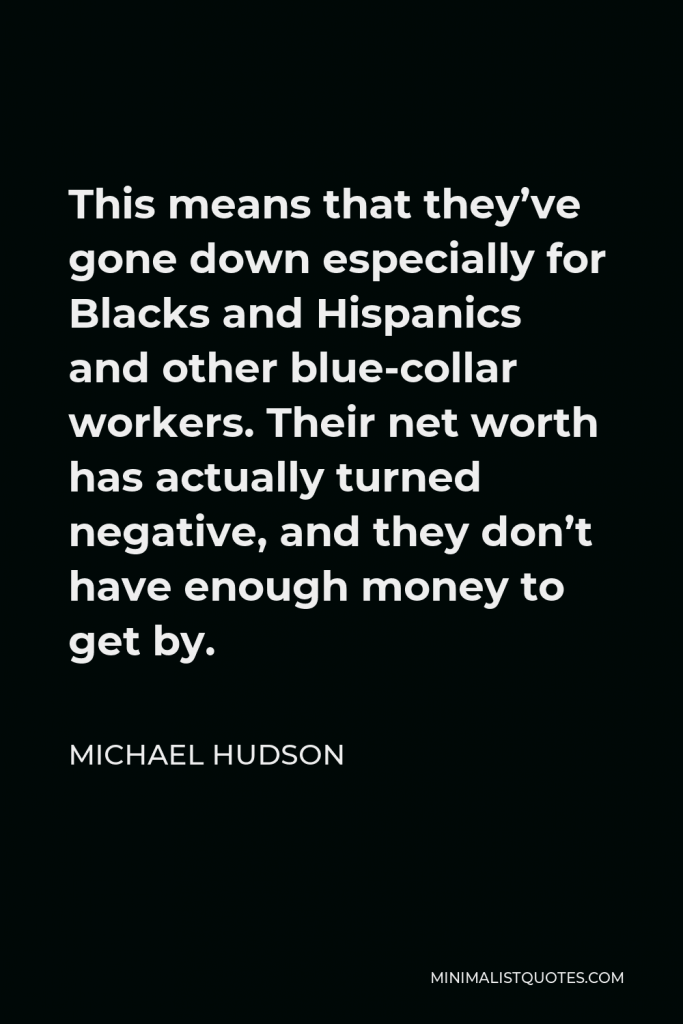

This means that they’ve gone down especially for Blacks and Hispanics and other blue-collar workers. Their net worth has actually turned negative, and they don’t have enough money to get by.
MICHAEL HUDSON -





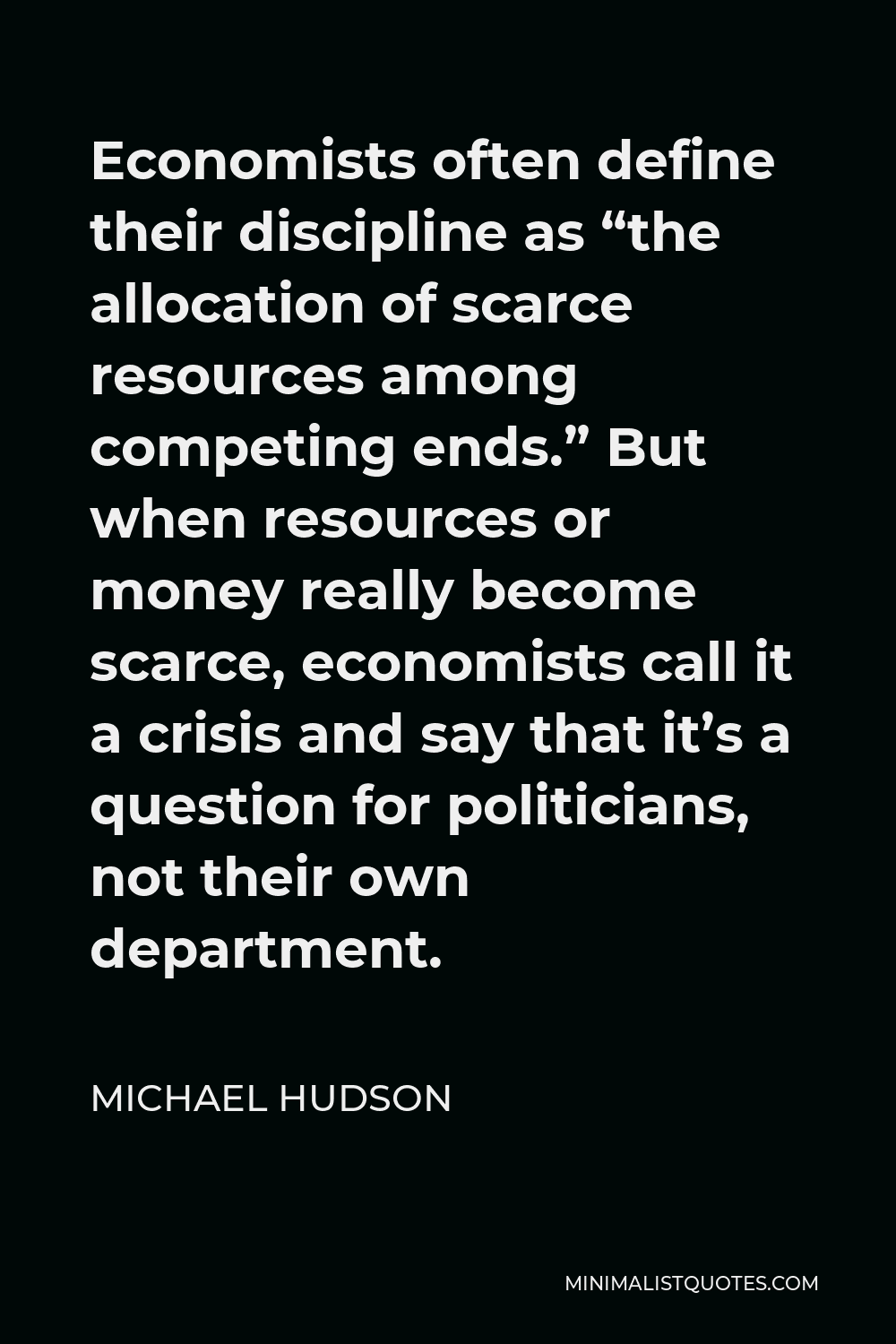
Economists often define their discipline as “the allocation of scarce resources among competing ends.” But when resources or money really become scarce, economists call it a crisis and say that it’s a question for politicians, not their own department.
MICHAEL HUDSON -





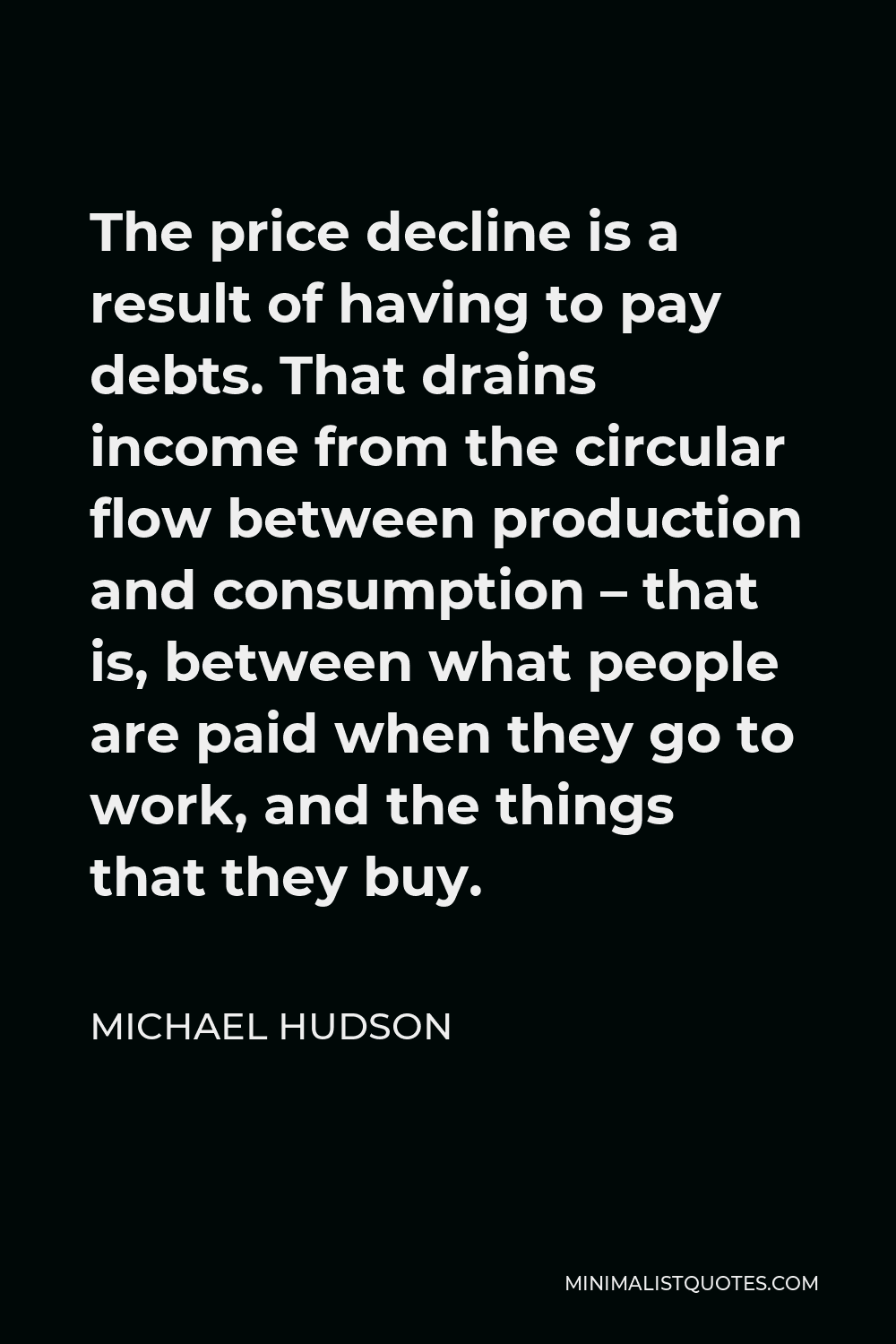
The price decline is a result of having to pay debts. That drains income from the circular flow between production and consumption – that is, between what people are paid when they go to work, and the things that they buy.
MICHAEL HUDSON
